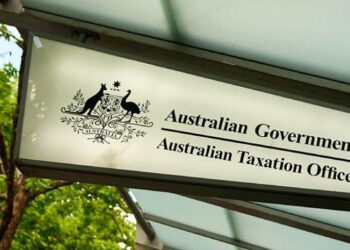Prior to the Liberal party leadership spill and the removal of Kelly O’Dwyer from the financial services portfolio, the IPA had arranged to meet with Ms O’Dwyer to discuss a possible reinstatement of the exemption.
This followed substantial lobby efforts by the IPA and other industry groups such as software firm BGL.
SMSF Adviser understands the IPA has since met with new Assistant Treasurer Stuart Robert after he was appointed to the role.
However, Mr Robert confirmed this week that he would not be considering any options until after the final report from the royal commission is handed down.
“The government is awaiting the outcomes of the royal commission before considering any reform to financial advice provided in relation to SMSFs,” Mr Robert told SMSF Adviser.
The final report from the royal commission is due to be submitted to the Governor-General by 1 February 2019.
The accountants’ exemption was removed in 2016 and replaced with the limited licence regime, which has been criticised as “unworkable” and costly.
The take-up of the limited licenses by accounting firms also fell well below the projected numbers.
Accountants who chose to become authorised under another licence have also encountered challenges, with some of the dealer groups lacking an understanding of how accountants operate and the AFSL environment unfamiliar to accountants.
“Accountants look at the process and they don’t understand it, because the process was created for financial planners and it’s worded in the way in which financial planners need it,” Merit Wealth’s David Moss told SMSF Adviser previously.



Acountants with a practising certificate are really the only people who understand a clients family position and tax implications of financial advice. A practicing certificate should allow financial advice.
All great comments (especially the ones about the accounting bodies doing nothing when drastic measures had to be taken) but the comments from “Jane” are like an oasis in the desert. Mot of us needn’t “fear the reaper” if we stay with what is allowed. The main issues are (a) not actually telling someone to set up a fund because it is the best thing since sliced bread and (b) recoemmending the start of a pension. I say the main issues because, in my experience, accountants have not recommended the purchase or sale of any specific asset so, as “Jane” says, exercising common sense is the key. It would be wonderful if the exemption was reinstated but, just as it was when it was removed, the fight would need to be taken up against the financial planners, the banks, the insurance companies and whoever else has a vested interest to make sure that it is not reinstated. This was where the battle was lost because the accounting bodies did not fight against the vested interests.
George, that ‘oasis’ is a ‘mirage’.
The definition of financial product advice in ASIC RG 36.4 includes…. statements of opinion that could be regarded by the client as intended to influence their decision about a particular financial product or an interest in a particular financial product (such as pension / accum accounts in an SMSF).
So if your accounting service goes beyond just administrative order taking then you’ve overstepped the line.
You surely can’t claim you gave tax and compliance advice and yet the client didn’t think you intended to influence their decisions?!
As accountants, we were let down by our professional bodies. How can the accounting bodies look at the planners and then aspire to be like that by forcing their Members into this planning regime. Just look at the RC to see how flawed the financial planning model is.
Stay away from the planners if you want to sleep easy at night.
Not before time. It was a ridiculous pierce of legislation. A super fund is an entity. Why discriminate it against other entities. Furthermore, advice should be given without a conflict of interest or bias. Most advice given by institutions are tainted with bias. This is why the level of trust is non – existent.
The FPA did an awesome job for their members – they had the institutional funding to promote their interests exceptionally well. Now the RC has revealed the source of that funding, and the level of self interest in the financial planning industry (not that self-interest isn’t everywhere!)
It’s a shame the accounting bodies couldn’t/wouldn’t articulate arguments against the financial advice changes, in particular the removal of the accountants’ exemption.
After talking to the CAANZ last week I was encouraged to hear just how much they and the other professional bodies are doing on this front.
Sounds good – can you elaborate?
Great the IPA is now trying to get a review of the Accountants’ exemption BUT where were all the Professional Bodies when this rediculous legislation was passed?. I am a SMSF Auditor and as I don’t have a AFS Licence I can’t give advice? how does that make sense? Yet another “laughable” policy decision to suit whoever benefits most.
For any accountants who feel cautious about what they can or cannot say to their SMSF clients, or the services they can provide, I recommend you download and read the CAANZ/CPAs joint publication “Financial Advice & Regulations: Guide for the Accounting Profession”. That in concert with ASIC’s INFO 216 on what accountants CAN do and say should convince you that if you practice common sense, you can continue to provide most SMSF services and factual advice to your clients, even without the accountants exemption.
Perhaps a pure ‘order-taking’ service could work – e.g. online.
But what if an accounting client relied on the information you provided when making their ‘financial product’ decisions? It’s hard to claim you didn’t influence/endorse their decision to use the SMSF if you were the only professional informing those decisions – and then helping to implement them.
Hints, nudges and ‘general advice’ all get caught by the product advice definition and require a license.
If you were the only professional helping the client make decisions (and you got paid to implement them) then you’re on the hook if anything goes wrong. Westpac tried to disclaim their way out of that sort of thing (factual service only) and are still in court over it.
Much safe to refer it. Even if the client chooses a tight scope of advice (to keep costs down) the responsibility for advice scoping shifts to the adviser.
Jane – there’s no such thing as “factual advice”. Either it’s advice (and thus falling under the licensing provisions) or it’s factual information. But beware, ASIC RG 36.24:
[i]However, in some circumstances, a communication that consists only of factual information may amount to financial product advice. [/i]
There is no doubt that there is a certain subjectivity contained here, which is not good for accountants who just want to help their clients in the most cost and tax effective way.
Best thing this Government can do is to scrap the whole limited AFS Licence experiment and reinstate the accountants’ exemption.
This is straight from ASIC’s website: “the definition of financial product advice (as explained above under ‘Providing financial product advice’) is broad enough to cover a wide range of discussions about SMSFs (and not solely discussions about whether the client should establish an SMSF). It includes any statement of opinion or recommendation that is intended to influence a client in making a decision in relation to an SMSF.”
Also, you do know you need an AFSL to give ‘General Advice’?
Hints and nudges and “if I were you… ” or “most clients in your situation would….” all count as advice under the definition. If your client suffers losses your PI insurer will just say “you weren’t covered for that – that needed a license”
And stand by while CAANZ does absolutely nothing on this front. Zero, zilch, nothing!
I couldn’t agree more. CAANZ have been useless in terms of trying to retain the accountants exemption. This is what their members wanted, but instead they sat silently and let us get to a position where we are today.